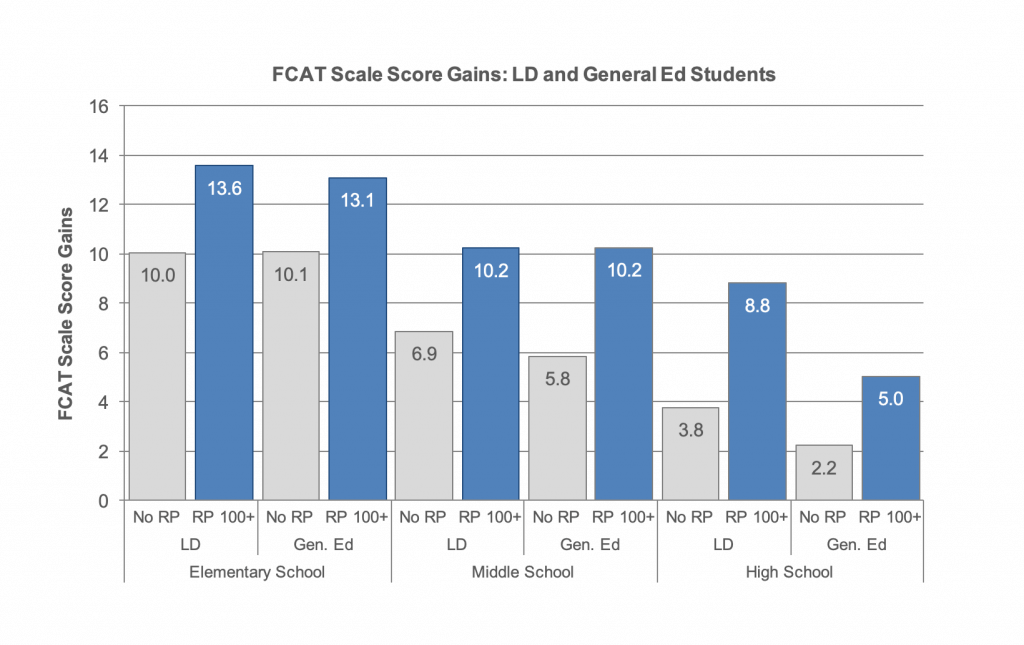
Purpose of Study:
This study focused on Special Education students identified by their schools as having specific learning disabilities (LD). Changes in the reading proficiency of these students were measured in relation to the amount of Reading Plus reading practice the students engaged in during the course of the 2013-14 school year. These outcomes were also compared with those of general education students.
Scores and levels on the reading portion of the Florida Comprehensive Assessment Test 2.0 (FCAT) were used as the measure of reading achievement. At the time of the study, the FCAT was the standardized state test administered to all Florida public school students in grades three through ten.
Study Design:
Included in the study were students in grades 4-10 with valid 2013 and 2014 FCAT data (n = 111,881). Of these, 7,406 (6.6%) were classified as having specific learning disability.
Changes in scores and levels between the spring 2013 and spring 2014 administrations of the FCAT were examined in relation to LD status and the amount of reading practice students engaged in. The latter was quantified in terms of the number of reading practice lessons completed.
Key Results:
In all grade bands, a significant positive relationship was found between increasing amounts of Reading Plus practice and larger scale score gains on the FCAT (p < .001). This was true for all student groups regardless of their LD status.
As well, students who completed at least 100 Reading Plus lessons (~30 hours) were significantly more likely to advance from below satisfactory to satisfactory (FCAT level 3) or higher on the reading portion of the FCAT. This also was true regardless of a student’s LD status.

